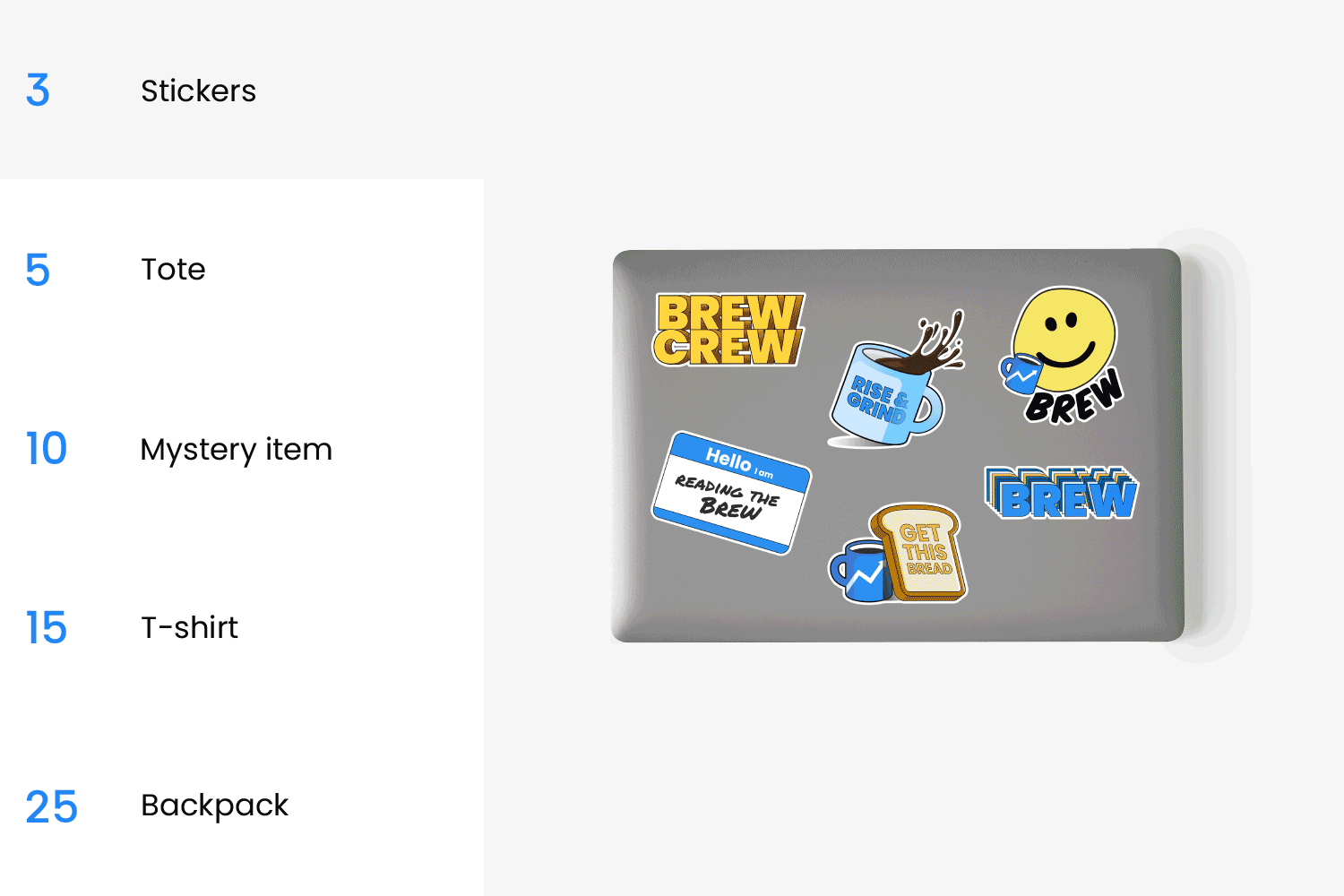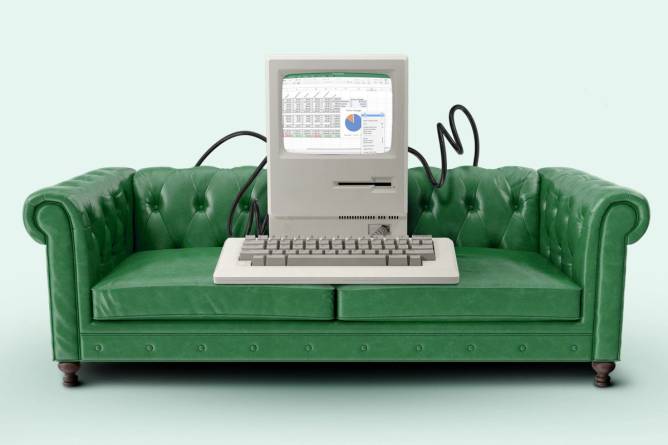|
Happy Friday! And, happy birthday to us! We’re 3 years old today, and like most 3 year olds, we can’t wait to open our presents. Forgot to get us a gift? How about the gift that keeps on giving: sharing this newsletter with all of your HR friends.
In today’s edition:
 The student has become the master The student has become the master
 Book club Book club
 The missing piece The missing piece
—Paige McGlauflin, Mikaela Cohen, Natasha Piñon
|
|
Illustration: Anna Kim, Photos: Getty Images
|
Many companies are having difficulty holding on to frontline workers as factors like low pay, inadequate job training, and big workloads have made these roles undesirable. Telamon, a telecommunications services company headquartered in Carmel, Indiana, with locations in 12 states, plus India and Europe, experienced this with its telecommunications equipment installers.
The problem for Telamon was two-fold, Kat Gerig, its VP of HR, told HR Brew: Not only was the company having difficulty recruiting experienced talent, but it also had too many senior-level workers completing junior-level tasks. As a result, it launched its Academy Installer Program in 2021, a multi-year training curriculum structured to promote apprentices into senior roles.
Not the right mix. At Telamon, the telecommunications installers are assigned a level depending on their experience. Level one employees are entry-level, essentially trainees, while level four installers are capable of handling high-level, potentially dangerous tasks, like testing and rebooting live equipment and supervising junior workers.
While a training program for these roles had been discussed for years, nothing had come to fruition. As a result, Telamon had been hiring senior technicians to handle responsibilities junior employees should’ve been overseeing. In 2020, one year before the program launched, 82% of its technicians were level four employees.
Keep reading here.—PM
|
|
|
Revolutionize how you work and lead at the Insights in Action summit, your gateway to staying current on the latest in technology at work.
Join keynoter Amy Webb, a world-renowned futurist and the CEO and founder of the Future Today Institute, as she reveals what’s next in technology and business and creates clarity out of uncertainty.
This groundbreaking event will focus on:
- leveraging your people data
- generative AI and its influence on the world of work
- HR technology and what it can do for you
- data privacy, cybersecurity, and AI ethics
Can’t attend on Oct. 9? Reserve your seat now and watch any of the three can’t-miss panel discussions and the inspiring keynote on demand at your convenience.
|
|
Emily Parsons
|
If you want to improve work performance, stop working (just for a moment) and start reflecting.
That’s according to Marie-Hélène Pelletier, a leadership psychologist, executive coach, and author of The Resilience Plan: A Strategic Approach to Optimizing Your Work Performance and Mental Health. In her book, Pelletier outlines how employees at every level can be more productive by aligning their work with their personal values. She shared insights from her book with HR Brew.
This interview has been edited for length and clarity.
What can HR pros learn from your book?
What I do in the book is I provide [HR professionals] a way to build their custom, strategic resilience plan, because there are generic actions, we all know about them, but they’re very hard to implement in a very full schedule, and what’s missing is that strategic aspect that really takes into account each individual context.
Keep reading here.—MC
|
|
Golden Sikorka/Getty Images
|
Some problems are best solved backward. No, we’re not talking about those math riddles you had to solve in middle school. We’re talking about supply, demand, and the supply chain pipeline.
The Bureau of Labor Statistics projected that hiring in logistics, including anyone who would analyze or organize a supply chain, will grow by 19% in the 10 years between 2023 and 2033, which the agency notes is “much faster than average.” (The average growth rate is 4%.) The problem: Where, or how, are organizations going to find the next wave of eager, skilled supply chain professionals?
One school, Old Dominion University, located in Norfolk, Virginia, just a stone’s throw from the largest Navy base in the world and the Port of Virginia, has seemingly cracked the code.
Keep reading on CFO Brew.—NP
|
|
Enter the comp matrix. Wanna get your hands on the largest equity and compensation benchmarks—like 40k unique data points kind of large? Then you need to link up with Carta Total Compensation, the comp tool that helps you get full vis into over- and underspend while staying ahead with real-time datasets. Get in the know. |
|
Francis Scialabba
Today’s top HR reads.
Stat: Some 43.5% of full-time US workers don’t participate in an employer-sponsored retirement plan, while 49.9% don’t work for employers that match their contributions. (Economic Innovation Group)
Quote: “Even the most hard-driving professionals, nobody wakes up in the morning saying, ‘I cannot wait to fight everyone at work with, from the minute I get in the office to the minute I go home.’”—Will Pate, CEO of mental health app ImpACT Me, on the importance of training employees to manage conflict (Canadian HR Reporter)
Read: These Stanford economists doubt companies will rescind their WFH policies, despite “headline-grabbing pullbacks” from employers such as Amazon. (Stanford Report)
Ready to transform work?: Join the Insights in Action summit to master leveraging people data and navigating AI’s impact on HR. Reserve your seat.* *A message from our sponsor.
|
|
|
Share HR Brew with your coworkers, acquire free Brew swag, and then make new friends as a result of your fresh Brew swag.
We’re saying we’ll give you free stuff and more friends if you share a link. One link.

Your referral count: 2
Click to Share
Or copy & paste your referral link to others:
hr-brew.com/r/?kid=9ec4d467
|
|
ADVERTISE
//
CAREERS
//
SHOP
//
FAQ
Update your email preferences or unsubscribe
.
View our privacy policy
.
Copyright ©
2024
Morning Brew. All rights reserved.
22 W 19th St, 4th Floor, New York, NY 10011
|
|









